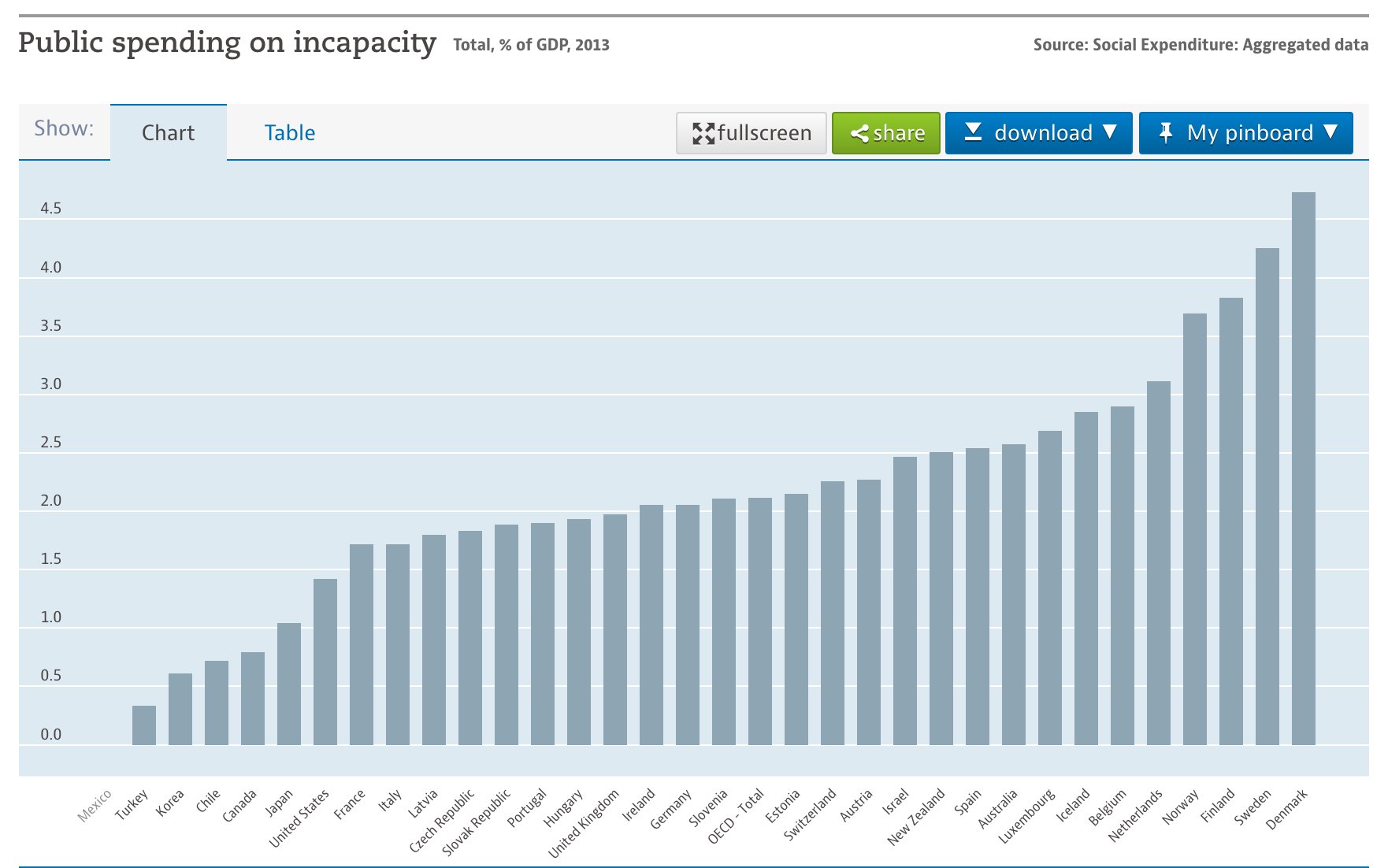Feb 18, 2017
Feb 17, 2017
Income Inequality Takes Toll On Trust Funds
Rachel West and Rebecca Vallas of the Center for American Progress write about the serious effects of income inequality on the Social Security trust funds. Because of the $127,200 cap on wages covered by the FICA tax, rising income inequality a greater and greater portion of income is escaping FICA. It's not like those with incomes over $127,200 a year are struggling. That's the group receiving the vast majority of income gains. If, instead of a flat cap, the FICA cap had been set since 1983 so that 90% of wages are covered, the Social Security trust funds would be $1.3 trillion higher now.
Labels:
FICA,
Trust Funds
Feb 16, 2017
Senate Votes To Allow Mentally Ill Claimants With Rep Payees To Buy Guns
The Senate has now joined the House of Representatives in voting to block regulations adopted during the Obama Administration that would have prevented some individuals with representative payees drawing disability benefits from Social Security from buying firearms.
Great work by all those in the Obama Administration who slow walked these regulations. The GOP couldn't have blocked these regs without your help. Oh, I know, you rushed it from Notice of Proposed Rule-Making (NPRM) to Final Regulation. I'm talking about all the time this was being ever so slowly considered before the NPRM was published.
Labels:
Gun Control,
Regulations
Feb 15, 2017
Report On DQ Reviews -- And I'm Not Talking About Dairy Queen!
For some years, the Division of Quality (DQ) of Social Security's Office of Disability Adjudication and Review (ODAR) has reviewed a small number of Administrative Law Judge (ALJ) decisions granting disability benefits prior to effectuation of benefits. Some decisions are overturned as a result of these reviews. A recent report by Social Security's Office of Inspector General (OIG) looks into these DQ reviews. Here's the bottom line of the OIG report:
By the way, take a look at this table from the report (click on it to view full size):
Overall, about 5 percent of the total PER [Pre-Effectuation Review] cases processed in FY [Fiscal Year] 2011 led to a denial or dismissal. Given the rate of denials and dismissals, we estimated the potential net program savings ranged from $23 to $25 million for that year. Overall, the Agency saved $4 to $5 on average per $1 spent on the PER process in FY 2011.There's one big problem with these DQ reviews -- there's zero proof that DQ possesses the gold standard for determining who is and who isn't disabled. You could save money by randomly overturning ALJ decisions that approve disability claims with no less validity. No one has a gold standard for determining disability.
By the way, take a look at this table from the report (click on it to view full size):
Notice the decline in dispositions at the same time as the agency's backlogs were increasing. Note also the much more dramatic decline in the number of favorable decisions. The 2010 election brought GOP control to Congress. The laws weren't changed but the climate at the agency changed dramatically. Backlogs were no longer a big concern. Denying as many cases as possible became a good thing. Anything like DQ that would cause more claims to be denied received favorable attention.
In any case, I'm going to keep repeating, DQ isn't the repository of the gold standard for determining disability. There is no gold standard. DQ is a waste of money unless your goal is denying more claims.
Labels:
ALJs,
Disability Claims,
OIG
Feb 14, 2017
Full Retirement Age Increasing
From U.S. News and World Report:
Most baby boomers can receive the full amount of Social Security they have earned at age 66. However, retirees who will turn 62 in 2017 need to wait an extra two months to collect their full Social Security payments. Starting this year the retirement age begins a gradual increase toward age 67. Here's how the older retirement age will impact how much you receive from Social Security.
A longer wait to claim full payments. The Social Security full retirement age is 66 for people born between 1943 and 1954. For those born during the five years after that, the full retirement age will gradually increase in two-month increments from 66 and 2 months for people born in 1955 to 66 and 10 months for those born in 1959. The full retirement age is 67 for everyone born in 1960 or later. ...
Feb 13, 2017
Student Loan Debt Out Of Control
The New York Times has an editorial today on the rapidly increasing problem of student loan debt among the elderly. The editorial urges an end to seizing Social Security benefits to pay off private lenders.
Labels:
Student Loans
Feb 11, 2017
We're Cheapskates
 | ||||
| From the International Social Security Association |
Public spending on incapacity (sickness, disability and occupational injury). Click on image to view full size. Note how low the United States is in comparison to other countries.
Labels:
International Social Security
Subscribe to:
Comments (Atom)

